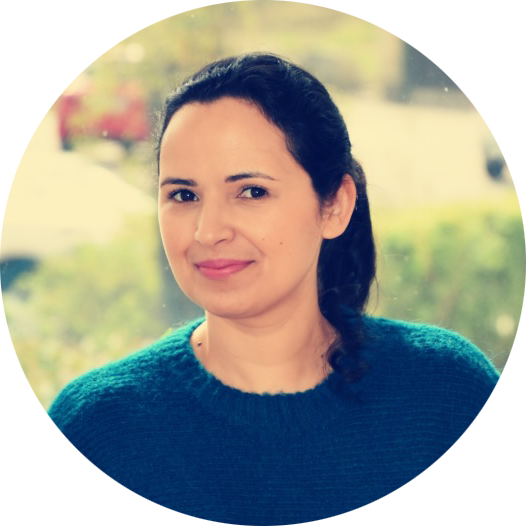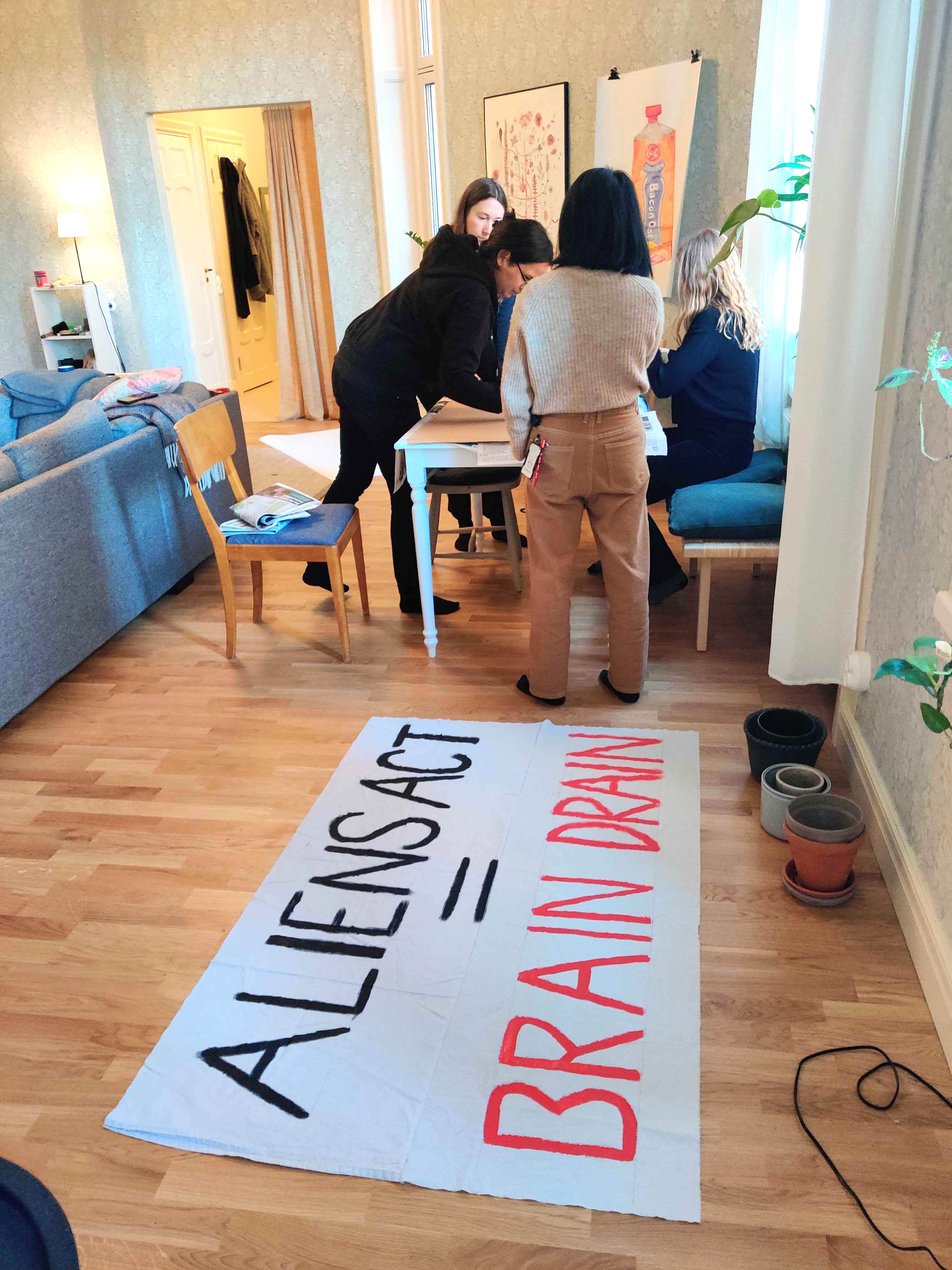
Researchers come together to protest the New Aliens Act
– It’s definitely not going to be to our advantage that we sort of close the door on a lot of talents.
Just over seven months have passed since the changes to the Aliens Act (utlänningslagen) came into force. The new order has made it substantially more difficult for doctoral students and researchers from non-EU/EEA countries to gain a permanent residency permit in Sweden, as you now need to prove that you have employment for at least 18 months after the Migration Office has begun to process your application.
Applying for permanent residency can only be done after four years on a residence permit for researchers, meaning that as your employment as a PhD student ends, you will immediately have to find a new employment, spanning at least 18 months, if you want to stay in Sweden. This has stirred an outpour of criticism from the Swedish academia and research community.
– It came as a big surprise and it affects people who were already in Sweden when it came into force. People who were going to finish in just six months had to change all their plans because of this. In academia, finding an 18 month work contract is quite impossible. I think that’s where a lot of the frustration comes from, that it really feels impossible, says Meryem Saadi, PhD student in Art History at Uppsala University.
I’m talking to her and Oliver Degerstedt, PhD student in Pharmaceutical Science and chairperson of Uppsala University’s Doctoral Board, through Zoom. Together with a group of volunteers they are preparing for a local manifestation against the Aliens Act this Saturday at Gamla Torget.

PhD student Meryem Saadi. (Photo: Private)
"I’ve already started to think about the fact that I will have to start to actively look for a job during my fourth year."
Before the changes to the Aliens Act were made, non-EU/EEA PhD students used to be able to get a permanent residence permit after their four doctoral years were done, without needing to prove they had secured a future employment. Meryem Saadi and Oliver Degerstedt claim this used to be one of the main reasons international students applied for PhD positions in Sweden.
– Of course there are a lot of other reasons as well, but for many people I know this was a main argument for picking Sweden. When you move to another country to do a PhD you are looking for stability, says Meryem Saadi, and Oliver Degerstedt chimes in:
– I mean, it’s a nice bonus. You have good working conditions as a PhD student in Sweden. So to have good working conditions for four years and then having the added bonus of getting a permanent residence permit makes this a very attractive country for international PhD students.
Meryem Saadi is from Morocco and will herself be affected by the changes to the Aliens Act as she hopes to stay in Sweden when her four years as a PhD student come to an end. Though as of now, she is only in her second year (though almost her fifth year in Sweden as she also did her Master’s here) and still has hopes of finding employment before she runs out of time.
– Even so, it has created a lot of stress. I’ve already started to think about the fact that I will have to start to actively look for a job during my fourth year and we all know how extremely stressful that last year of your PhD is without having the added stress of looking for a job, she says.
Meryem Saadi’s position on this matter is echoed by the results of a survey that was presented earlier this week. The survey was conducted by SFS-DK, the doctoral students committee in SFS (Swedish National Union of Students), together with a number of other partners engaged in this cause, and it comprises the answers from over 5 000 doctoral student respondents nationwide. Just like Meryem Saadi, 69 percent of the non-EU/EEA respondents express that they wish to stay in Sweden after they have completed their doctorate. However, 27 percent explicitly stated that they do not want to stay due to the New Aliens Act.
– One of my colleagues from Serbia didn’t even want to bother looking for employment in Sweden when she had completed her PhD, so she went to Paris instead, says Oliver Degerstedt.

PhD student and chairperson of Uppsala University's Doctoral Board, Oliver Degerstedt. (Photo: Private)
"I think a lot of PhD students affected by this feel quite isolated and might feel that nobody is listening to them."
The New Aliens Act will not only have consequences for the individual PhD students directly affected by it. Oliver Degerstedt, not himself affected by the change to the act as he is Swedish, says the country will lose a valuable resource in the researchers they have already invested in, and thinks that Sweden will fall behind in the long run.
– Just in my little circle I know there are a handful of good researchers, people that would make a great contribution to their fields, that we will lose because it’s just too much of an inconvenience for them to meet the new requirements, he says, and adds:
– It’s definitely not going to be to our advantage that we sort of close the door on a lot of talents. Especially not since many other countries in the world are aggressively recruiting the best scientists.
Some PhD students drop the idea of working in academia when they have completed their doctorate and turn to the industries for employment instead, he says. However most industries have a six months probationary period, which is not enough for the income requirements of the New Aliens Act. And working in the industries is not necessarily even a viable option for PhD students in all fields. For example, those in certain departments of the humanities might struggle to find suitable employment outside of academia.
Since the New Aliens Act came into force, politicians and legislators have done little to heed the calls for reform and exemptions to the act that have emerged from the academic world. The general opinion among politicians, says Oliver Degerstedt, is that it’s up to the universities to provide longer lasting employment contracts.
– Meanwhile the universities claim that this is an issue for the politicians to deal with.
Though he also says that at Uppsala University the management and HR department have started to realise that the politicians probably won’t budge and have started to try to make changes at a university level. They have initiated a dialogue with the Migration Office and the Swedish Ministry of Education trying to highlight some of the issues the PhD students are struggling with. For example, that the review time for the applications to the Migration Office generally is too long.
– But in terms of creating longer lasting employment contracts… I don’t think that will happen in the foreseeable future. The one option PhD students can go for is a postdoc contract, because those generally extend over two to three years. But the funding that the universities get is generally quite time limited so I don’t think they will be able to provide longer or permanent employment to young researchers, says Oliver Degerstedt.
The suggestion that the collective body of doctoral students across the country is pushing for at the moment is that they be exempted from the income requirements of the Aliens Act.
– I can understand why they don’t want to make exemptions for PhD students as that would mean that they divide people into more and less valuable groups. But what we want to see is just that they fix this. Maybe there needs to be a new, creative solution to how we could get more people to stay rather than discourage them. However the easiest fix right now is an exemption and that’s why we are pushing this on a national level, says Oliver Degerstedt.
"I think it’s good to have some sort of physical event to highlight the issue."
The manifestation on Saturday will follow in the footsteps of similar demonstrations that took place in Lund and Gothenburg in February this year and they hope to make more people aware of this issue.
– I’m really surprised that so many people don’t know about the New Aliens Act. Even people at the university, mainly those that don’t normally work closely with non-european colleagues, are unaware of this. So I think it’s good to have some sort of physical event to highlight the issue, says Meryem Saadi.
– We know there are a lot of terrible things happening in the world right now that need more attention, but we want to show that there are people who care about this issue too. I think a lot of PhD students affected by this feel quite isolated and might feel that nobody is listening to them, so we want to show our support for them. This question deserves attention as well, says Oliver Degerstedt.

Photo: Private
Researchers' Manifestation against Aliens Act - Uppsala takes place this Saturday, March 4, at Gamla Torget between 13-15.























